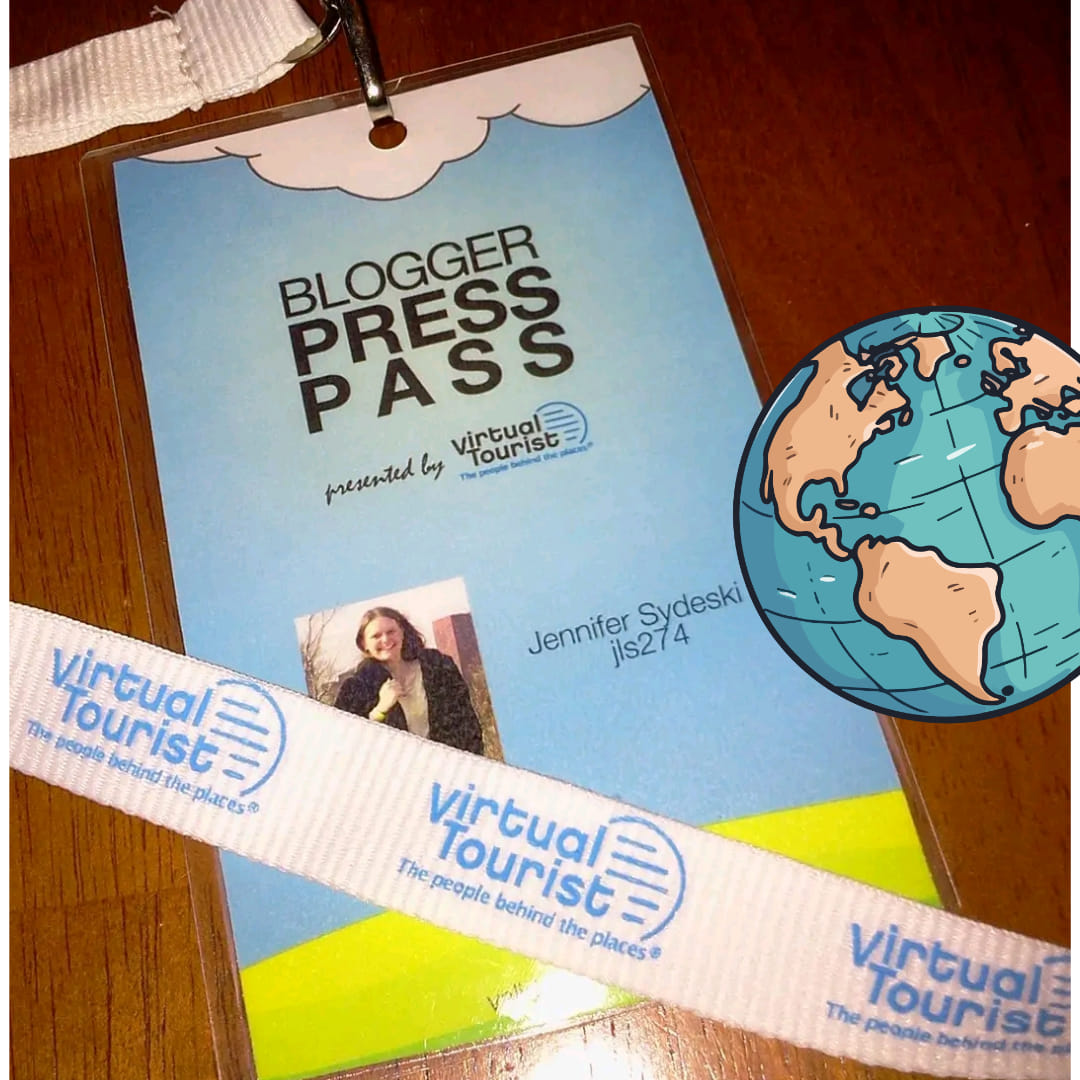
Scrappy Side-Hustles
The scrappy side hustle has always been a meaningful part of my story. Before graduate school, I often had three jobs: One that served stability, one that served my goals, and one that made more money but was less consistent and I could fit it in wherever I had an opportunity. This led to a really broad and diverse experience of leadership, followership, and organizational health while sometimes dipping my toe in entrepreneurship. During those years I was a Tomato Picker, Tutor, Babysitter, Secretary, Gutter Cleaner, Resident Assistant, English Teacher, Dance Partner @Nanjing China Sheridan, Drywall Hanger, Travel Blogger (Virtual Tourist exited to Trip Advisor), PetCo Sales Associate, Server@Houlihan’s Station Square, and Subway Sandwich Artist (x3). After graduate school, alongside my day jobs, I kept this up and took on an adjunct professor position teaching Intro to Engineering for 8 years, and I started a science blog with 18 contributors that I then pivoted first into a consulting company, and then into a leadership and operations training business for biotech companies, Leading Strand. Connect Wolf started as another side job before it blossomed into a full-force start-up with a team and budget, and today I serve as the Domain Expert in AI and Molecular Diagnostics for LifeX Global.
Lifelong Passion for Health Innovation
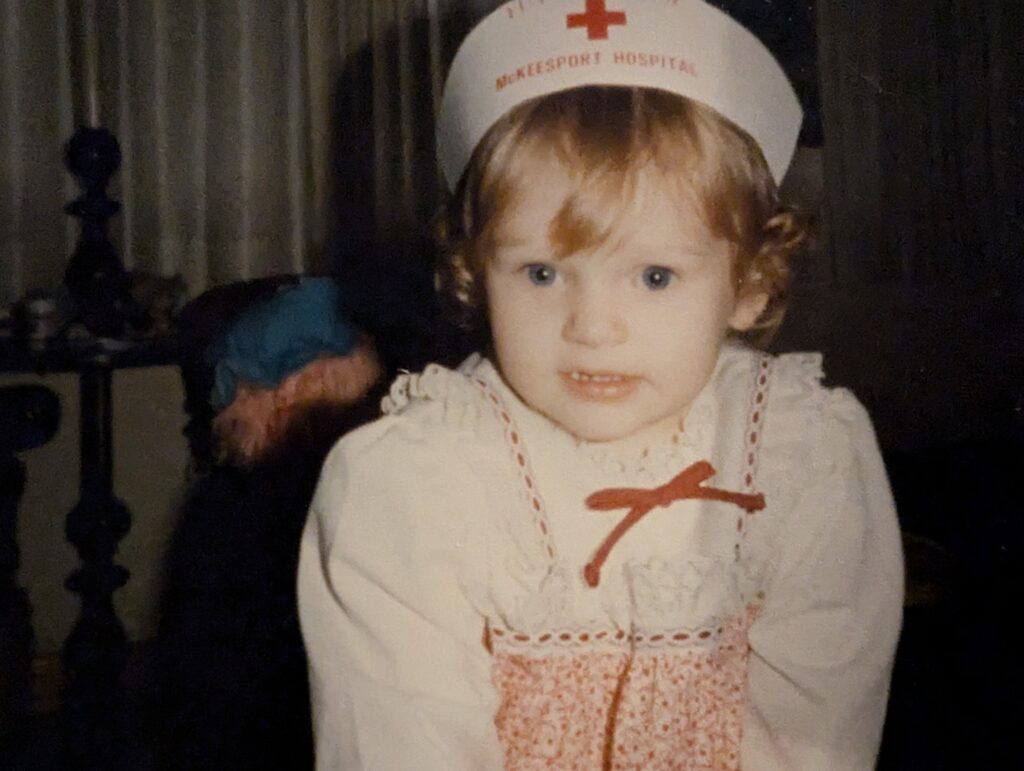
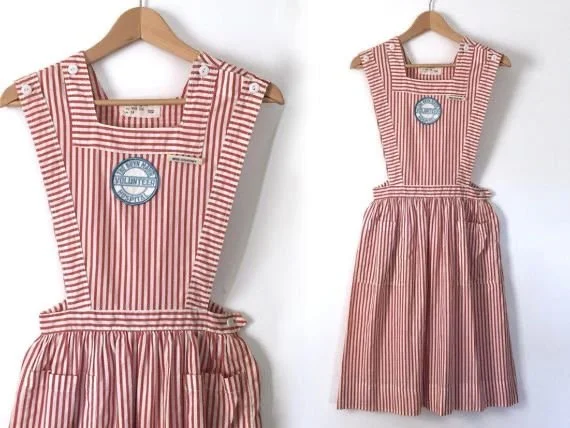
When I was 5 years old, I aspired to be “A full-time inventor, a full-time doctor, and a part-time everything else,” because I didn’t know the phrase Health Technology and Life Sciences Innovation.
I turned any neighborhood play into medical innovation adventures and focused on science experiments, building contraptions, and opportunities to dabble in health knowledge like first aid training & candy striping.
I had great high school mentors like Barbara Heckert and Frank Hughes. Just before college, Mr. Hughes nominated me for a scholarship to a future physician and medical innovators program at Georgetown University, which made it possible for me to attend with just a little fundraising by speaking at local organizations like the Rotary Club and the Optimist Club about the work I hoped to do in my career and how this opportunity would build towards that. They generously got me to the total, and I was so fortunate to tour a Becton Dickinson facility to see devices in development, operate on a cadaver at Howard University (I removed calcium deposits from a wrist!), and work with my cohort through the nights while sneaking into libraries 🫣 to solve issues and develop plans for our projects during the program. The keynote speaker, Patch Adams, was author of one of my favorite books on health as care, House Calls, and I got to meet him when setting up my hearing aid FM system for the auditorium.
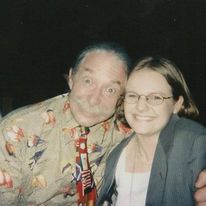
17-year-old Me
In college, I studied Biomedical Engineering, Biochemistry, Conceptual Foundations of Medicine, Physics, Applied Mathematics, Chinese Language & Culture, and EMT while working in research labs at the Nanjing University of Science and Technology, on protein separations, Hilman Cancer Center on implementing lab software, and encounted my first taste of translational research at the McGowen Institute for Regenerative Medicine, where I had the chance to work in the Badylak Lab on early ECM research and development and on a contract project for Alung (exited to LivaNova). While I was kicked out of Pitt’s Bioengineering program 104 credits in (buy me a mead and I’ll tell you all about it 😉), I was completely hooked on biotech.
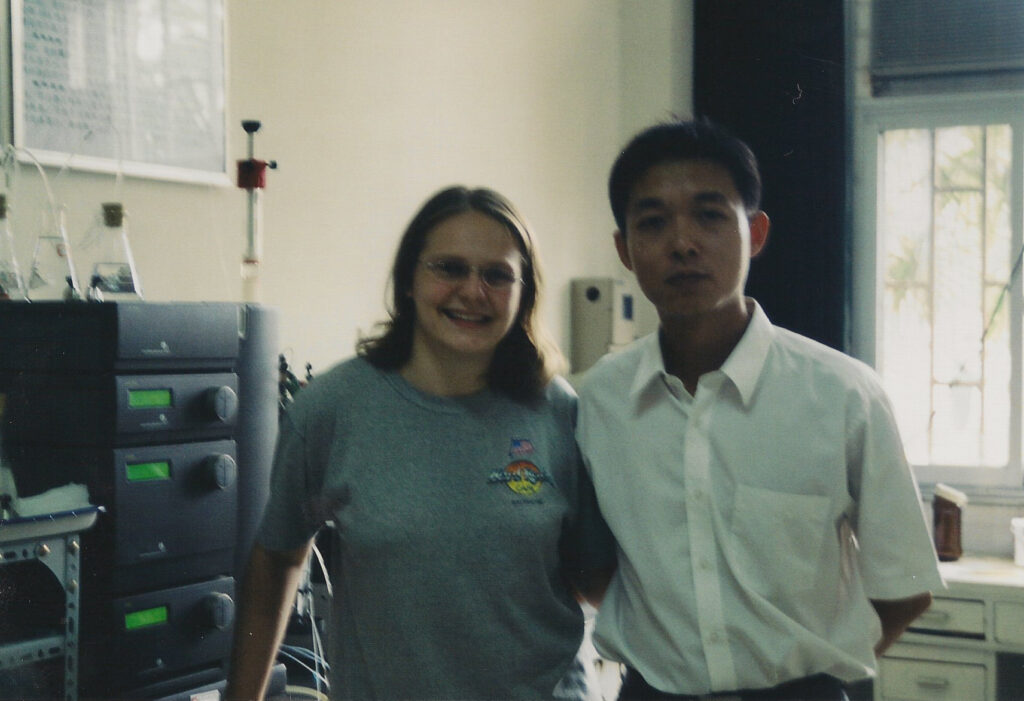
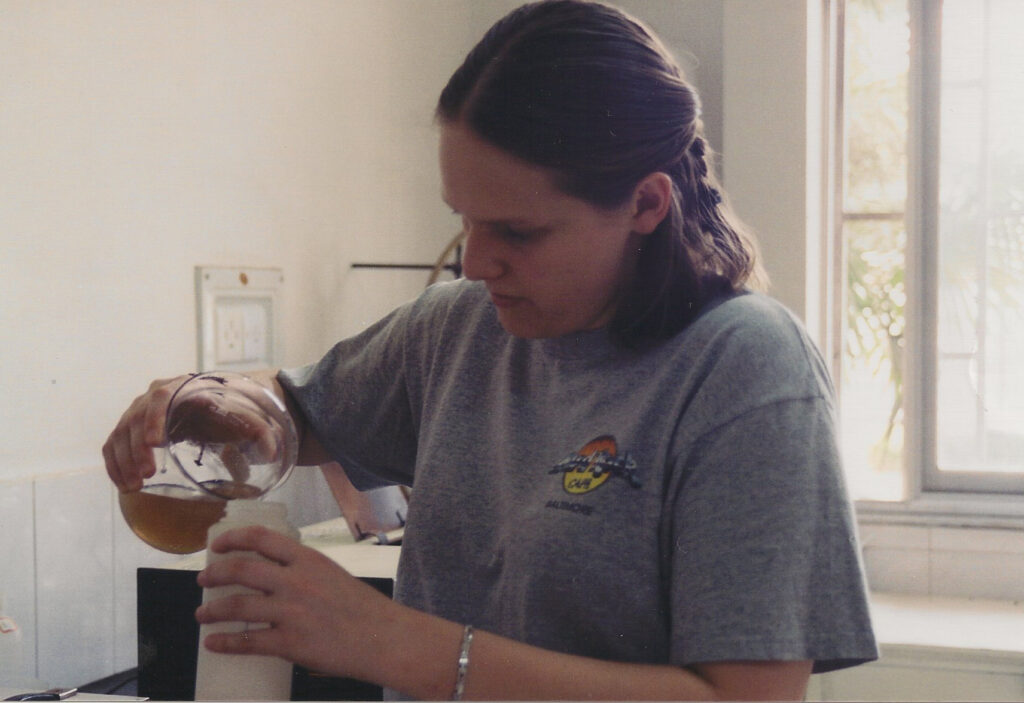
As my early career days launched into a new phase after plowing through a year of heavily stacked schedules to graduate (BS Chemistry: Biochemistry & Minors: Applied Mathematics, Physics, East Asian Studies with Chinese Language) I spent some time learning portfolio management, vendor negotiations, operations, and regulatory affairs/compliance through QA, RA, and Procurement at Heinz North America (now Kraft-Heinz). I did another research lab stint at UPMC in the Department of Pathology working on molecular signaling in rodent liver models before studying transcriptional regulation in immunology at grad school.
A decade in, I found that my experience of innovative R&D and translational academic research, with a layer of Fortune 500 corporate operations was pointing me in a new direction, mixing aspects of both worlds: Start-Up Biotech Innovation.
At Precision Therapeutics (Helomics/exited to Predictive Oncology), I was brought in to help operationalize for scale a second product to support their flagship product’s commercialization. With a background that empowered me to do the molecular work, analytics, operational process development, regulatory support, and robotics management, this role was practically built for me and I loved it. This is the point at which I cold-emailed several biotech CEOs to see if any would meet with me for some guidance, as I was on a quest to become a strategic leader in the industry. I truly recommend anyone working towards a particular role should do this – there is nothing more entertaining and insightful in that journey than asking people to warn you away from their job or tell you want makes it great. In a neat “full circle” moment, Pete DeComo, the CEO of ALUNG, my first exposure to start-ups a decade earlier, was down for a chat. I had some great guidance from people of enormous experience and accomplishment and this was a tipping point in the transition to my next decade focused on innovation and strategic leadership.
My next adventure was at Cernostics (exited to Castle Biosciences) where I was one of 5 people in the company with a flagship product in the pre-FDA approvals phase. Here I was fortunate to be in such an early-stage company that beyond the molecular, automation, and analysis work I did in my scientist role, I was coming in as the resident expert in regulatory affairs, quality assurance, and production laboratory operations, and was able to expand to take some lead, make some mistakes, and push forward on the strategy and customer/patient-facing side of things significantly – navigating reimbursement, supporting sales and marketing, and developing customer service.
Connect Wolf, Inc
I had some potential start-ups that I’d begun as side projects. Because of the Theranos scandal, it would be a bad time for my primary (molecular diagnostic MDx) project, but the tech, funding landscape, and markets for my secondary (Internet of Medical Things IoMT) project were looking ripe. I had an electrical engineering buddy who was liberated from a local start-up due to acquisition and I’d been going to the local IoT meet-up, where I saw enough opportunity for hardware investment alongside a gap in a perfect high-margin market for a flagship product.
At this point, I’d also been studying Organizational Leadership using my free adjunct credits, taking online management courses, and reading business books by the dozen for about 5 years. I was playing with the idea of going after a pricey MBA to boost my chances at being a great leader and business strategist, when I found that tons of free or nearly free training at a level well beyond what was offered in my undergraduate business courses were being subsidized by venture and economic development money in the form of Start-Up Incubators, Accelerators, and the like following the successes of former Y-Combinator companies. At the IoT meetup, I’d met the managing director of the new local hardware accelerator, AlphaLab Gear, who strongly encouraged me to bring this to the table, and it seemed like a great moment to get some education and push forward my IoMT platform concept.
Sparing you the details, I went through multiple programs for a combined 70 weeks of training while building and growing this business. I did pitches and customer discovery and market research and financial models and A/B tests and machine learning and managed teams – at one point having 25 interns (Summer 2020 I wrote ~40 emails to ~400 students after combing through ~4000 resumes and tailoring potential projects to CMU students who had lost their internships last minute due to the pandemic. It was a crazy summer and also it was a thing of beauty). A lot of what I did beyond the technical and business work was learning the art of community building, growth, and marketing. The company was on pause for a while, but now is being driven forward, pivoting to focus on software that leverages the existing wearables market and as a platform for market testing consumer health solutions.
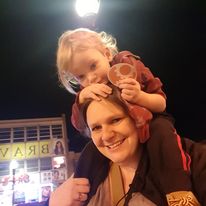
2017 My buddy outside AlphaLab Gear with associated sticker after a seminar on scaleable strategies.
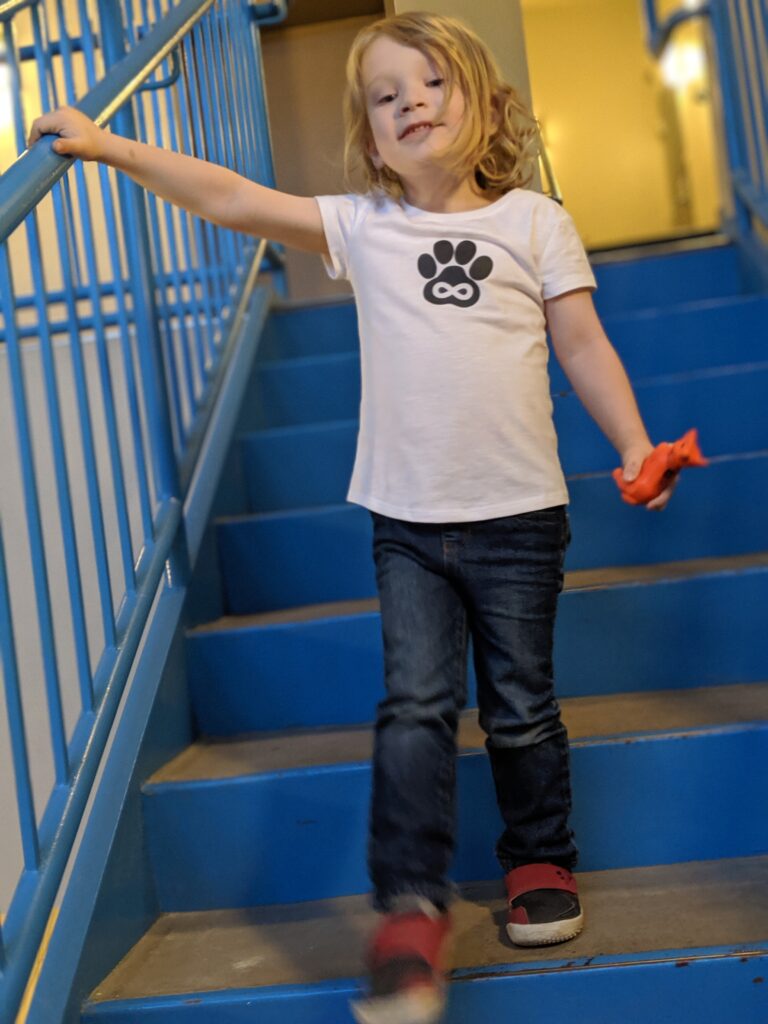
2019 My buddy in AlphaLab Gear during an event sporting his Connect Wolf t-shirt.
90 second Pitch
5 min Pitch

Boothing with Prototype @Thrival
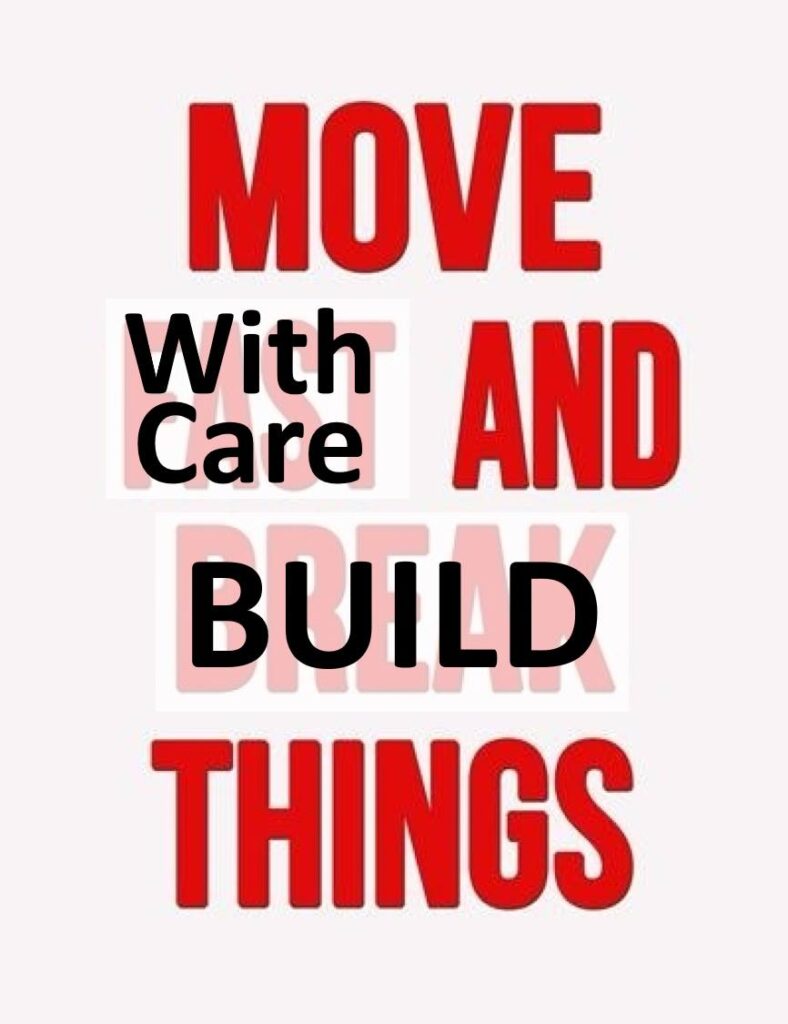
Team orienting value motto developed while in Ethics MVP program.
At Sheetz, I report to the Chief Innovation Officer, and initially innovated with a focus on consumer health & AI-driven platform solutions (at your friendly, local, family-owned convenience store’s skunkworksy venture studio), while learning from the masters of consumer convenience. My work included communicating with executive team members, focusing on scalable health solutions, extensive customer discovery to refine value propositions and enhance user experience, unit economic analysis, financial modeling, rapidly testing, refining, and operationalizing business concepts, multi-channel marketing (especially digital marketing through ad platforms like Meta and Google), recruiting and managing teams, and advising other high-level innovators working across high-opportunity sectors for commercial innovation. I heavily leveraged community building and community marketing. I identified, launched, operationalized, and iterated three health-oriented business concepts in 18 months, demonstrating viable demand, willingness to pay, and scalability and delivered strategic advice and support for 10 additional business concepts led by fellow innovation leaders. After some strategy shifts, my role became focused on crafting innovation infrastructure and leading cross-functional efforts in innovation for the future of convenience.
EKTO VR
EKTO VR and my previous start-up Connect Wolf were both developing electronic wearable hardware platforms at Ascender’s 2019 boot camp, AlphaLab Gear (2019-2020), and at Alloy 26 for their start-up residency (2020-2021), so EKTO VR founder Brad Factor and I had been bouncing ideas off of each other, giving each other feedback, and helping each other out through our companies’ early days. Soon after I stepped away from Connect Wolf, Brad formally recruited me as a Biz Ops advisor, and then brought me on as Co-founder and Head of Growth.
I joined EKTO VR to use wearable platforms to make health measurement & maintenance more accessible, enjoyable, & personalized. Also because, strategically, this hard tech was leveraging other rising technologies with each iteration for nonlinear development progress and on a trajectory to meet a market more enormous than folks realize. And also because it is cool as heck.
My work at EKTO VR has leveraged my skills in business strategy, operations, and utilizing fractional bandwidth for measurable progress. I’ve pushed infrastructure and launched initiatives for community building, social marketing, and bootstrapping projects.
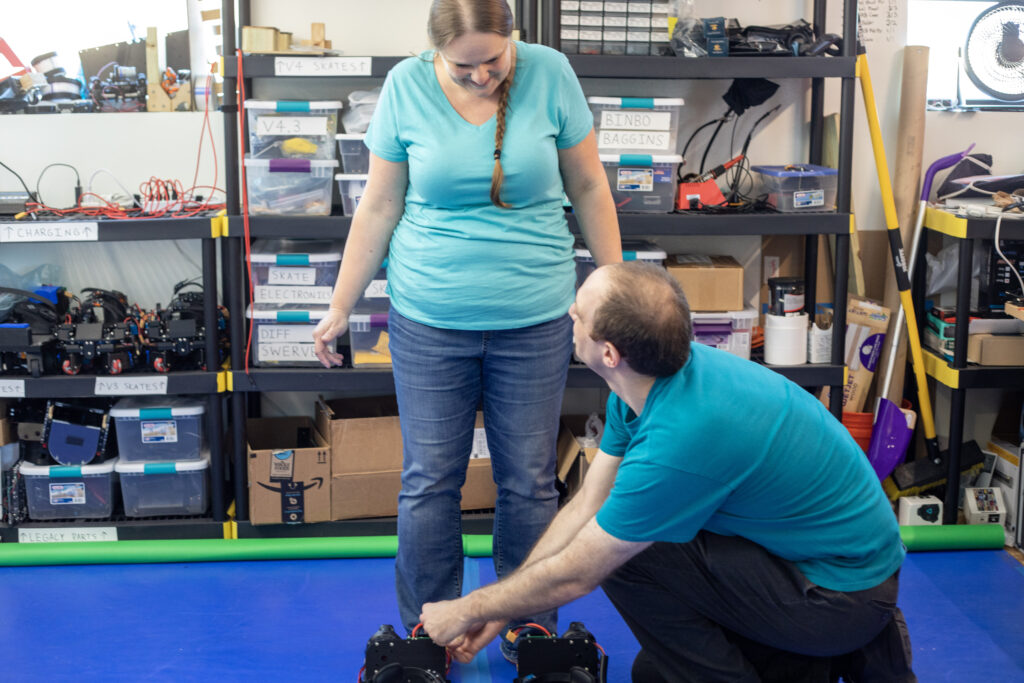
2019 AlphaLab Gear
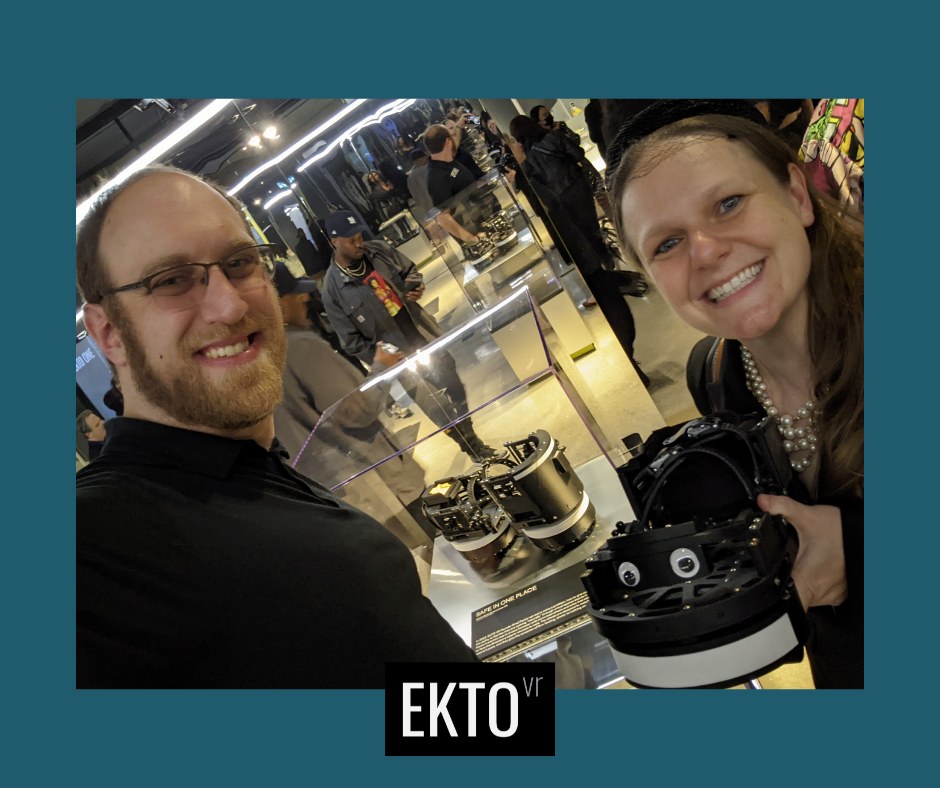
EKTO VR Boot
@Bata Shoe Museum
Future Now Exhibit
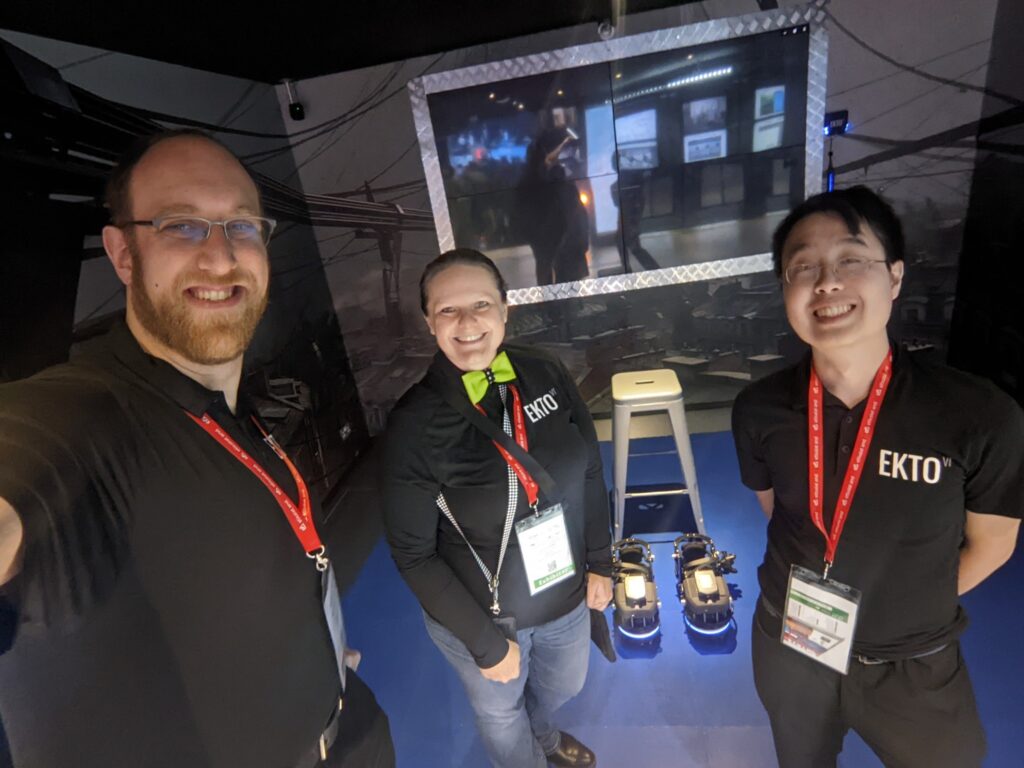
EKTO VR Team
@Gitex Dubai, UAE
Have a look at what EKTO VR does 😉
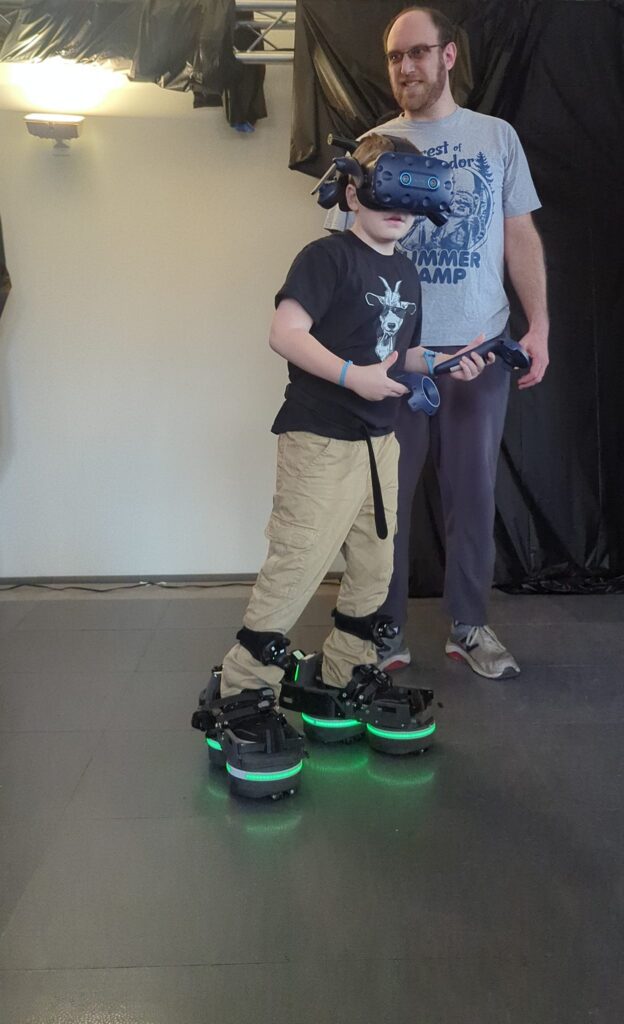
My buddy, the first little kid on the EKTO VR Boots
At LifeX and now Innovation Works, I leverage over a decade of teaching and mentoring experience to bring my 20 years of health tech and life sciences innovation and strategy experience to early founders and support their next steps in developing the future of health.
What’s next? While mentoring and independent projects aligning with my passion are part of the picture, I’m looking for the next step in my full-time journey. I would love to lead strategy and innovation in a Health Technology and Life Sciences organization or take on a strategic role in a funding organization that has an interest in these areas.